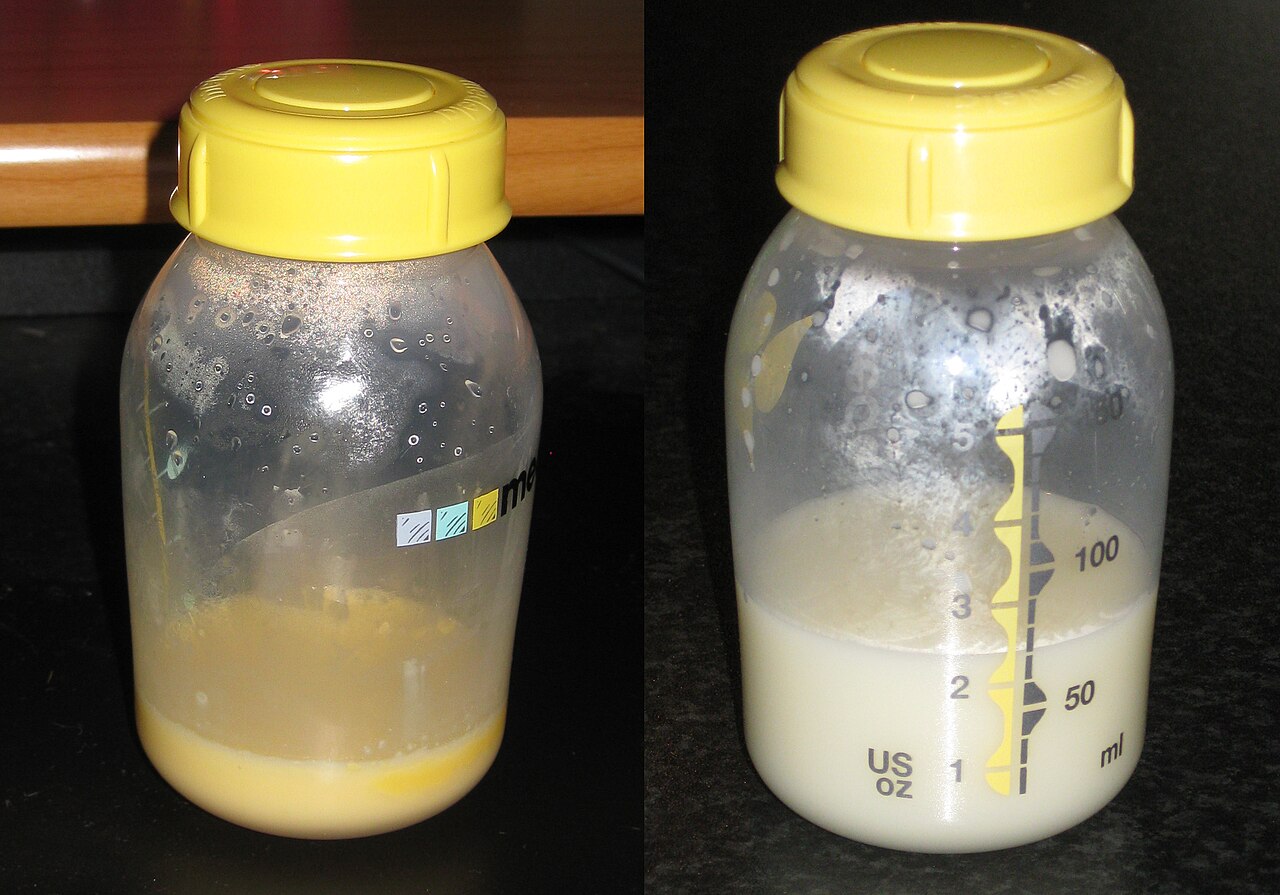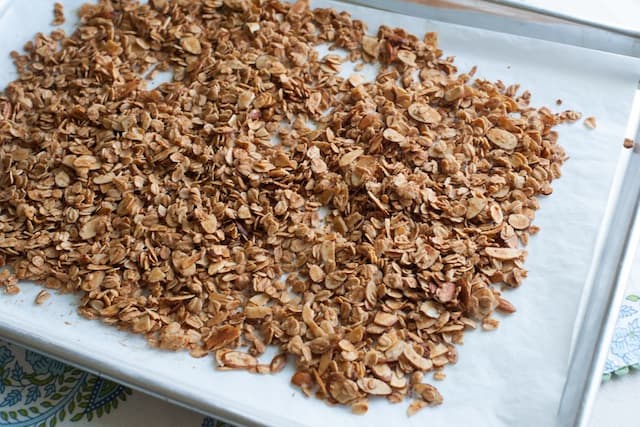I hear so many mothers ask the same questions. Is there any milk? Where is the colostrum everyone is talking about? Is my baby going to starve because it’s only getting a few drops of milk at each feeding? I thought my milk was going to be white? I can’t feel anything coming out, why? Breastfeeding is natural, normal, intuitive, and instinctual, right? Hmm...
If that’s the case then why do so many babies not latch on or fall asleep the minute the breast is in its mouth? If colostrum is the first milk, then why do you only see yellow gooey stuff coming out of your breast, what is that? Where is this colostrum everyone is talking about and what exactly is it? The yellow, sticky, thick, gooey stuff is what many call liquid gold. It is the most precious liquid nutrition that is known to man. That yellow liquid is your colostrum, the keeper and guard of your baby’s life and health.
Colostrum is wonderfully packed with a punch. Every drop contains bountiful amounts of nutrients, antibodies, live cells, lactoferrin (specialized protein), and oligosaccharides (simple sugars). Now that we have a small window into a few of the benefits of colostrum; let’s look at the larger picture of what colostrum does for our newborns, and how much the baby actually needs. The answer is very surprising. A newborn only needs a small amount of colostrum to build that hedge of protection around its little defenseless body. A newborn’s belly, the first few days of its life, is as big as a large marble, by three days it is the size of a ping pong ball, and by day ten a newborn’s belly is the size of a small egg. Colostrum is easily digested because the baby’s body was made to ingest this perfect food. So between the belly size and colostrum’s perfect digestion abilities, a newborn needs to eat often with very small amounts each time for the first few days of life.
 The colostrum composition changes as your baby gets older, day one colostrum is not the same as day two or day three. Your colostrum and milk change weekly, daily and even hourly to perfectly provide your baby’s needs. The perfect unique nutritional needs of your baby will never go unmet when nursing. Some of these nutritional values include: allergy immunity components, laxative components, and long chain fatty acids. What are all of these things and why does your newborn need them?
The colostrum composition changes as your baby gets older, day one colostrum is not the same as day two or day three. Your colostrum and milk change weekly, daily and even hourly to perfectly provide your baby’s needs. The perfect unique nutritional needs of your baby will never go unmet when nursing. Some of these nutritional values include: allergy immunity components, laxative components, and long chain fatty acids. What are all of these things and why does your newborn need them?
The first one we will discuss are antibodies. Immunoglobulins are antibodies that focus on one pathogen and destroy one particular pathogen. Each antibody is made for its own assigned pathogen, to un-stabilize it and destroy it. The main immuniglobin is sIgA. It patrols various areas of the body. It is actually made and stored in the breast. It protects the digestive tract by latching on to the fat in the milk so it passes through the whole tract and is not absorbed into the intestines. Instead it can be used in the gut, as soldiers protecting the baby from disease.
Live blood cells are another huge component of breast milk. Every drop of colostrum is loaded with live white blood cells. There are up to five million white blood cells in each milliliter of colostrum. The average is about one million white blood cells per milliliter that is a hundred times more white blood cells than an adult has in their blood. Just to let you know how big a milliliter is - it is equal to one fifth of a teaspoon. That is a lot of white blood cells! Another type of live blood cells that are contained in colostrum are lymphocytes. They attack and kill germ cells, and they also break down proteins and fats so they can start their immunity functions.
Colostrum contains protein. Lactoferrin is the highest amount of protein that your baby will ever get from breast milk. Colostrum contains three times more protein than mature milk. It is chocked full of protein and lactoferrin that kills viruses, fungi, and many bad bacterial. It has an anti-inflammatory component and it also combats E Coli and yeast infections.
Oligosaccharides are simple sugars and carbohydrates in colostrum that keep and seal the digestive tract from harmful pathogens that cause diarrheal diseases, which are the most common threat to newborn health.
The laxative components of colostrum help prepare the baby’s intestines for food intake, which it has not used before its birth. This laxative helps get rid of meconium, which is the bowel substance (first poop) that accumulates in the baby during pregnancy. It is important to expel meconium as soon as possible, by doing so the baby is getting rid of unwanted bilirubin.
Jaundice is referred to as an excess of bilirubin. When baby is in the womb it has a need for many extra red blood cells to carry the oxygen through the baby. After birth, the baby obviously breathes from its lungs and has no need for the extra red blood cells. Once the baby is born, it needs to break down the extra red blood cells and dispose of them. The old, unneeded cells release iron and bilirubin during the break-down process. The iron is easily stored in the baby’s liver and other tissues to be used at a later date. However, the bilirubin must be eliminated from the liver. The baby’s small and immature liver cannot always render out the bilirubin as fast as it is made from the old cell breakdown. Physiologic Jaundice is normal and temporary and does not require treatment. The bilirubin is disposed of through the meconium. So the natural laxative and colostrum can highly benefit the baby by keeping the jaundice from turning into pathologic (abnormal) jaundice.
As you can see there are many benefits to colostrum, and these are just a few. Remember the key to an abundant milk supply is to feed the baby as soon as possible after birth and do not go longer than every two hours between feedings. Your ultimate goal should be to feed the baby ten to twelve feedings daily.
Do not be worried or discouraged if the baby just “plays at the breast”. This is common, normal and nature’s way of the baby getting to know you. Sometimes expressing a small amount of colostrum onto the baby’s lips will motivate more aggressive sucking.
Breastfeeding is one of nature’s most perfect gifts. I know this blog is a lot for YOU to digest, however, I just wanted you to know the importance of EVERY drop of colostrum. Enjoy your baby!
---------------
Disclaimer:
Anticipation and Beyond uses all reasonable effort to provide accurate, up-to-date and evidence-based information for teaching and counseling purposes. All information that is written for blogs, social media posts, and websites is to be used for education and informational purposes only. All data and instruction from Anticipation and Beyond should not be intended to replace or substitute professional or medical advice from your health care provider. Direct all of your family’s concerns, questions, and health issues to your health care provider.
The information provided is not and may not be applicable to every situation. The purpose of Anticipation and Beyond providing guidance and education to new families is two-fold. The first purpose is for the intention of teaching parents about the many choices and alternatives that are available to them. The second motivation is to encourage families to dig down deep and research themselves from reliable resources that will help to enlighten their new journey.








 The colostrum composition changes as your baby gets older, day one colostrum is not the same as day two or day three. Your colostrum and milk change weekly, daily and even hourly to perfectly provide your baby’s needs. The perfect unique nutritional needs of your baby will never go unmet when nursing. Some of these nutritional values include: allergy immunity components, laxative components, and long chain fatty acids. What are all of these things and why does your newborn need them?
The colostrum composition changes as your baby gets older, day one colostrum is not the same as day two or day three. Your colostrum and milk change weekly, daily and even hourly to perfectly provide your baby’s needs. The perfect unique nutritional needs of your baby will never go unmet when nursing. Some of these nutritional values include: allergy immunity components, laxative components, and long chain fatty acids. What are all of these things and why does your newborn need them? 



 Ingredients:
3 cups oatmeal
2/3-1 cup sucanat (or other sweetener)
2 tsp. baking powder
1 tsp. cinnamon
1 tsp. salt
1 cup milk (I use almond or coconut)
½ cup melted butter (or other oil)
2 eggs, beaten
Fruit, optional—I LOVE adding mashed bananas. Peaches also taste heavenly!
Ingredients:
3 cups oatmeal
2/3-1 cup sucanat (or other sweetener)
2 tsp. baking powder
1 tsp. cinnamon
1 tsp. salt
1 cup milk (I use almond or coconut)
½ cup melted butter (or other oil)
2 eggs, beaten
Fruit, optional—I LOVE adding mashed bananas. Peaches also taste heavenly!

 So...do you like breakfast? (Of course you do.) Well then, friend, let me introduce you to a recipe that will change your life.
So...do you like breakfast? (Of course you do.) Well then, friend, let me introduce you to a recipe that will change your life. Every mama needs an a few simple, easy-to-make recipes that require little to no prep and can be made in under 30 minutes. The best thing about this is that as simple as it is, you can adjust to make it more organic and health conscious if desired.
Every mama needs an a few simple, easy-to-make recipes that require little to no prep and can be made in under 30 minutes. The best thing about this is that as simple as it is, you can adjust to make it more organic and health conscious if desired. 
 We love salads any time of the year, and this recipe is so tasty that we sometimes just make it our dinner entrée for the evening, served alongside a thick slice of French bread.
We love salads any time of the year, and this recipe is so tasty that we sometimes just make it our dinner entrée for the evening, served alongside a thick slice of French bread. Granola
Preheat oven to 250 degrees.
Granola
Preheat oven to 250 degrees.





 Tropical Coconut Granola (Single Recipe)
Tropical Coconut Granola (Single Recipe) Bananas Soft Serve: this has the consistency of ice cream which pretty much makes it amazing! I love it by itself and a la mode style.
Bananas Soft Serve: this has the consistency of ice cream which pretty much makes it amazing! I love it by itself and a la mode style.